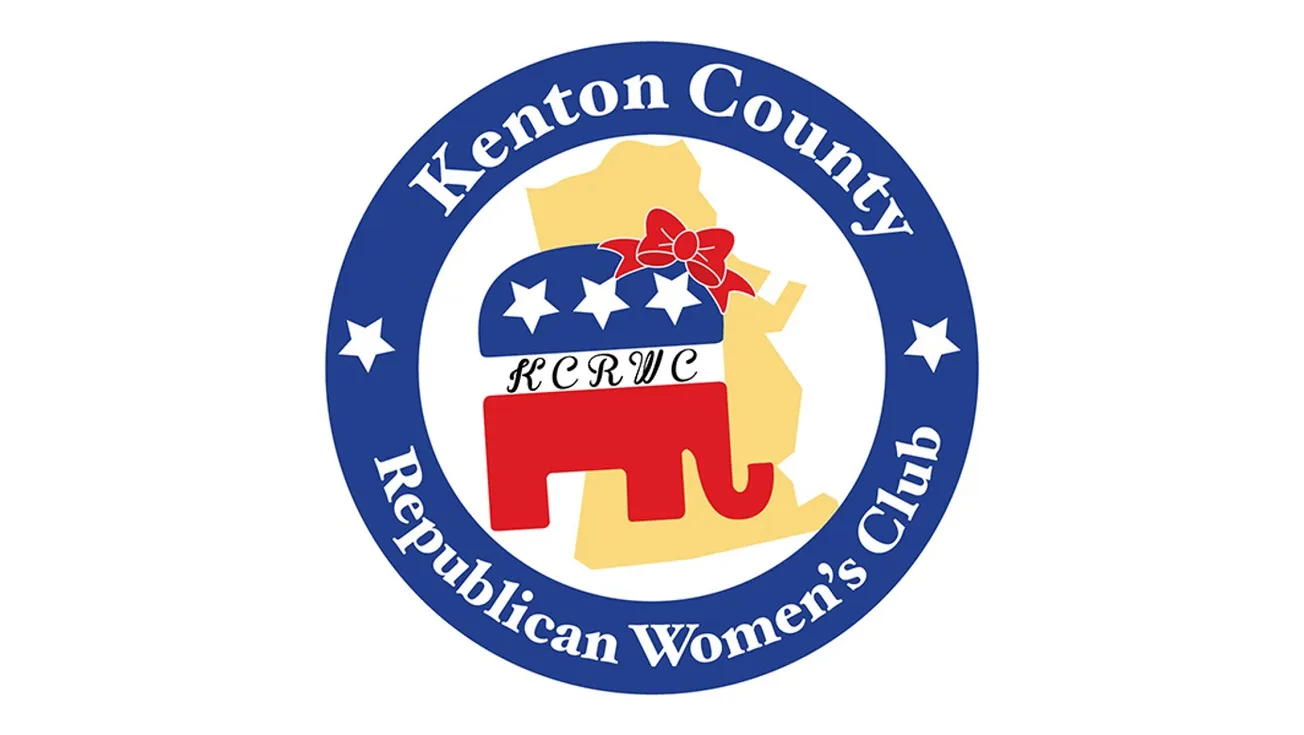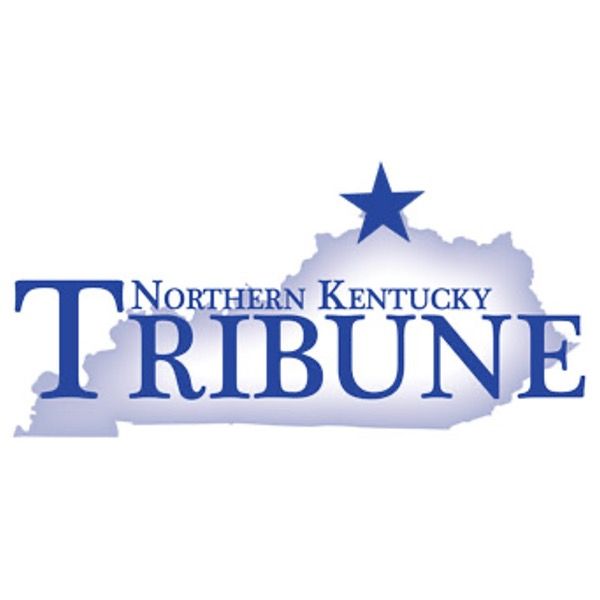In Kenton County, as the primary election inches closer, Republican candidates aren’t just aligned on the issues — they are nearly indistinguishable. With the primary scheduled for May 21, the voters in this slice of Kentucky have a clear, if narrow, spectrum of choices: unyielding opposition to abortion, robust support for gun rights and school choice, and a broad endorsement of what the group calls “family values.”
At a recent candidate forum hosted by the Kenton County Republican Women’s Club (KCRWC) at the Life Learning Center in Covington, the air was thick primarily with politics of agreement. Karen Campbell, the candidate running to replace incumbent Kim Moser for the 64th district state representative seat, was the only candidate to go on the attack, specifically against Moser’s voting record on Senate Bill 150. SB 150 has since banned gender-affirming care for minors across the Commonwealth. Despite Moser voting against SB 150, both she and Campbell made it clear that they would fight against any attempts to legalize transgender care for minors in the future. Campbell explained to the room of approximately 40 people that she was in the dark regarding issues like SB 150, issues she felt her legislator, Representative Kim Moser, should have communicated better to constituents.
Kathleen Bell, the Vice President of Membership at KCRWC, wasn’t having it. “It’s a personal responsibility. They might act like they don’t know, but it’s a personal choice,” she said.
“I can’t stand the apathetic voter, and there are a lot of them,” Bell lamented. That’s why Bell is passionate about cultivating a more informed and engaged electorate through the KCRWC, which aims to enhance voter involvement by fostering “friendships, goodwill, and good information.” The primary candidate event aimed to do just that by connecting voters directly with their would-be representatives.
Kelli Bailey, serving her first term as president of the KCRWC, remarked on the ideological uniformity that characterizes this year’s primary slate. “I mean, for Republicans, I believe pretty much every candidate shares the same view,” she noted. This alignment is underscored by dual endorsements from both Right to Life and the NRA with most candidates, signaling a firm commitment to the conservative pillars of anti-abortion legislation and Second Amendment rights.
The candidates themselves have taken up this mantle with zeal. Michael McGinnis, who is running for the U.S. Representative seat in the 4th District, spoke of his plans to “fix Congress” and refusal to accept corporate or special interest money. He detailed his approach to immigration reform, which includes completing the border wall — a project initiated under former President Donald Trump — and implementing stringent identification requirements for non-native workers. McGinnis said he believes that most people seeking relief in the U.S. cross the border for American currency and that anyone seeking employment who is not native-born should be required to produce two forms of identification. His platform also suggests that Americans could lower the deficit by banning federal health care dollars and food stamps from the immigrant population.
According to the Kentucky Health Benefit Exchange, undocumented immigrants and DACA recipients aren’t eligible for Medicaid, qualified health plans, or the advance premium tax credit.
Representative Thomas Massie and 4th district congressional candidate Eric Deters did not speak at the event.
Julia Jaddock
State Senate hopeful Julia Jaddock, running for the 17th District, emphasized her commitment to “fight for family values.“
“I’m pro-life. That means pro-mom. That means fighting for the mother. Because I will tell you if you have ever been in the position where you have gone through an abortion, guess what, you know the cost,” Jaddock explained. Her comments mimic sentiments of the recently failed “love them both” bill.
HB 467 would have required medical providers to offer or refer pregnant people and their families to palliative care and support when receiving a diagnosis that indicates fetal death before or shortly after birth. During the 2024 Kentucky legislative session, democrats walked out on the bill during a committee hearing, claiming it “masquerades as help” but really “shames mothers who are losing children” by not offering the option to terminate a pregnancy in the case of severe fatal fetal anomaly. The bill also included language defining a fetus as a baby, which opponents call a slippery slope toward fetal personhood.
Jaddock emphasized the need to unite and promised to bring some joy to the political process.
“Send me to Frankfort, and I will lead the charge for things that are good and wholesome,” said Jaddock.
Matt Nunn
Also in the 17th District, Matt Nunn shared insights from his experience in the Human Resources Department at Toyota Tsusho America, underscoring his non-conformist approach.
“My friends said, buckle up; this ought to be exciting. Matt in HR, he’s not a real PC,” Nunn joked. He then asked the audience if they had heard of diversity, equity, and inclusion. Muffled laughter rolled across the room, and heads shook in disapproval.
Nunn criticized diversity and inclusion initiatives that, in his view, did not prioritize merit and fairness in employment and took credit for the company not incorporating DEI efforts into its hiring practices. He also voiced his opposition to corporate policies on vaccination status, which he views as morally and operationally misguided.
“The proof is in the pudding,” Nunn said, and his work history, military involvement, and successful small business are examples of what his leadership would look like if elected.
“If you send me to Frankfort, I’ll be an effective legislator, and I’ll do good things for the people who call this place home,” said Nunn.
Kim Moser
Incumbent State Representative Kim Moser of the 64th District outlined her achievements and continued commitment to conservative principles. “I’m 100 percent pro-life, I’m pro-second amendment, and I’m fiscally conservative,” Moser stated proudly.
Moser highlighted endorsements from Kentucky Right to Life, the Kentucky Chamber, and the National Rifle Association, and her ability to pass at least 40 pieces of legislation during her time in office,
including “right-to-work legislation, a prevailing wage, and lowering taxes.”
She also highlighted her role in passing legislation to improve maternal health and effectively manage the state’s budget. “This year, we improved maternal health care and saved moms and babies. That was my bill, dubbed ‘Momnibus’[…], and we got it through,” said Moser.
Moser highlighted Kentucky’s dismal maternal mortality rate, which is one of the worst in the country. According to data by the Centers for Disease Control and Prevention (CDC), Kentucky is ranked second-highest in maternal mortality rates in the U.S., with 37 out of 100,000 women dying while pregnant or within 42 days of termination of pregnancy.
Abortion services are currently entirely banned, with very few exceptions in Kentucky. Two bills introduced during the 2024 Kentucky legislative session would have allowed rape and incest exemptions. However, both failed to move forward.
Audience members asked Moser and her opponent, Kim Campbell, whether or not they would support rape and incest exemptions if allowed to vote on the issue in the future, both said no.
Karen Campbell
Karen Campbell is challenging Representative Kim Moser for the 64th district seat. Campbell first considered running for office because Moser voted against Senate Bill 150, which currently bans gender-affirming care for minors.
“I believe that an overwhelming majority of people in our district, as well as the state of Kentucky, do not back or condone the transgender treatment of children, so I stand on that principle to be an advocate for not only unborn children but an advocate for after they are born to pursue life as they are biologically assigned,” said Campbell. “I was stunned to find that my representative was only one of three to vote against this (Senate Bill 150) bill.”
An audience member asked Moser to explain her vote. “I vote as I always do, to protect children,” Moser said. “There were serious unintended consequences that were about to happen with this bill.” Moser explained the need for mental health care access for kids and believed voting in support of SB 150 would “abandon children” in need of these services.
“I stand firmly on protecting children from gender mutilation, including the transgender surgery and cross-sex hormones, especially for minors,” Moser said.
Campbell concluded her speech by calling for changes to the Certificate of Need guidelines, which she believes are blocking access to additional health care options in this region and Kentucky.
“I’m running to serve the people that represent family first values, that includes free speech, right to worship, right to bear arms and the right to protect our families,” said Campbell.
Steve Doan
“From the outset of my campaign, I’ve tried to do everything I can to restore the American dream,” said Steve Doan, incumbent Representative for the 69th District.
Doan discussed three bills he filed during this last legislative session: House Bills 101, 102, and 103.
HB 101 removed the sales tax on gold. “Now it might not sound like a big issue, but eliminating the sales tax on gold allows us to open the door for new and innovative technologies that would allow folx to purchase gold through digital currencies,” Doan explained. By having access to sound currency, Doan says people would be able to push back against the “dying dollar.”
HB 103 gave parents unlimited access to their children’s medical records, a move that opponents feel would be detrimental to minor patients, especially those in dangerous or unhealthy home situations, and would cause young people to avoid seeking necessary primary medical care.
Doan specifically mentioned access to records involving gender-affirming care. However, previous care protected where a minor could consent without permission from their parents or guardians also included reproductive health care, mental health, chemical dependency, and general medical care when, in the provider’s professional opinion, if the minor’s health or life is at risk that treatment should be given without delay.
Doan called House Bill 102 “a bold housing reform bill” in need of Americans to obtain affordable housing. HB 102 did not make its way into law but did get the attention of the American Legislative Exchange Council (ALEC). Doan said he has been asked to present the bill at the next ALEC conference as a “model legislation for the way to fix housing across this country.”
Doan also took credit for helping to bring millions of dollars to the region for road improvement, including $30M for Stevenson Road.
Diane Brown
Diane Brown, also vying for the 69th district state representative seat, wants to restore local control to communities and work towards making Kentucky income-tax-free. She is also a huge proponent of school choice and currently homeschools.
“I think we need to make more of our decisions at the level that affects our people the greatest, at our cities, at our counties, where our neighbors are present. So finding the flexibility in Frankfort to bring that local control back is my leading agenda,” said Brown.
Brown wants to find ways the local community can fill in where she believes the government shouldn’t have to. For example, she said that during COVID, she worked with her church to open and staff it to allow children in the Erlanger and Elsmere school districts to work in groups on school projects who would have otherwise been left home alone.
“We don’t need government to do it for us; we can lean on each other to make better things happen,” Brown said.
An audience member asked Brown if she supported local control for abortion, gun bans, and sanctuary cities. “Where we can, we should,” said Brown. However, where issues are federally mandated, “we won’t be able to get local on that.”
Brown said it isn’t reasonable to travel from county to county or city to city and check what the gun control laws might be. She also said she has a lot of concerns about red flag laws. In regards to abortion, “I absolutely believe that’s something that could be handled through zoning better,” she said. Brown said that would be an issue to consider if abortion is later legalized. She said she doesn’t believe sanctuary cities would solve immigration concerns. “I think we can continue to push for more local control, but not total local control. Certainly, when we look at interstate commerce, interstate travel, cross-country travel, we need to be careful that we aren’t interfering with each other,” Brown explained.
Doan also clarified his support for school choice, the gender-affirming care ban, and being anti-abortion.
Closed primaries
Kentucky is a “closed primary” state. This means voters must be registered with a political party to cast a ballot on May 21. If voters are uncertain about their registration status, they can check with the county clerk’s office or online with the Secretary of State’s office. However, the registration deadline for this primary election ended the same day as the KCRWC forum, on Monday, April 22.
For unaffiliated or independent voters, participation is limited to races with more than two candidates for a nonpartisan office, such as judges or city and county commissioners.
Kentucky Secretary of State Michael Adams announced that 8,816 new voters had registered this March. According to a release, Republican registrants account for 46 percent of the electorate, with 1,612,767 voters, while Democratic registrants make up 43 percent, with 1,511,958 voters.
Are 362,567 voters registered under other political affiliations, accounting for 10 percent of the electorate. “Other” registration rose by 2,117 voters, a .60 percent increase. Secretary Adams is expecting a high turnout.
Kenton County Republican Women’s Club
“Every single election is incredibly important,” said Kathleen Bell. “A big point is not just to represent the candidates here but to keep like-minded women together as a think tank to think and share every bit of information we can with friends and neighbors so we can get the word out there so they have a real source for information.”
Bell said the club has around 70 members, including women from surrounding counties like Boone and Grant. Membership at the local level automatically includes enrollment in the Kentucky Federation of Republican Women.
“You can’t beat that,” said Bell.
--30--
Written by Nicole Erwin. Cross-posted from the Northern Kentucky Tribune.








